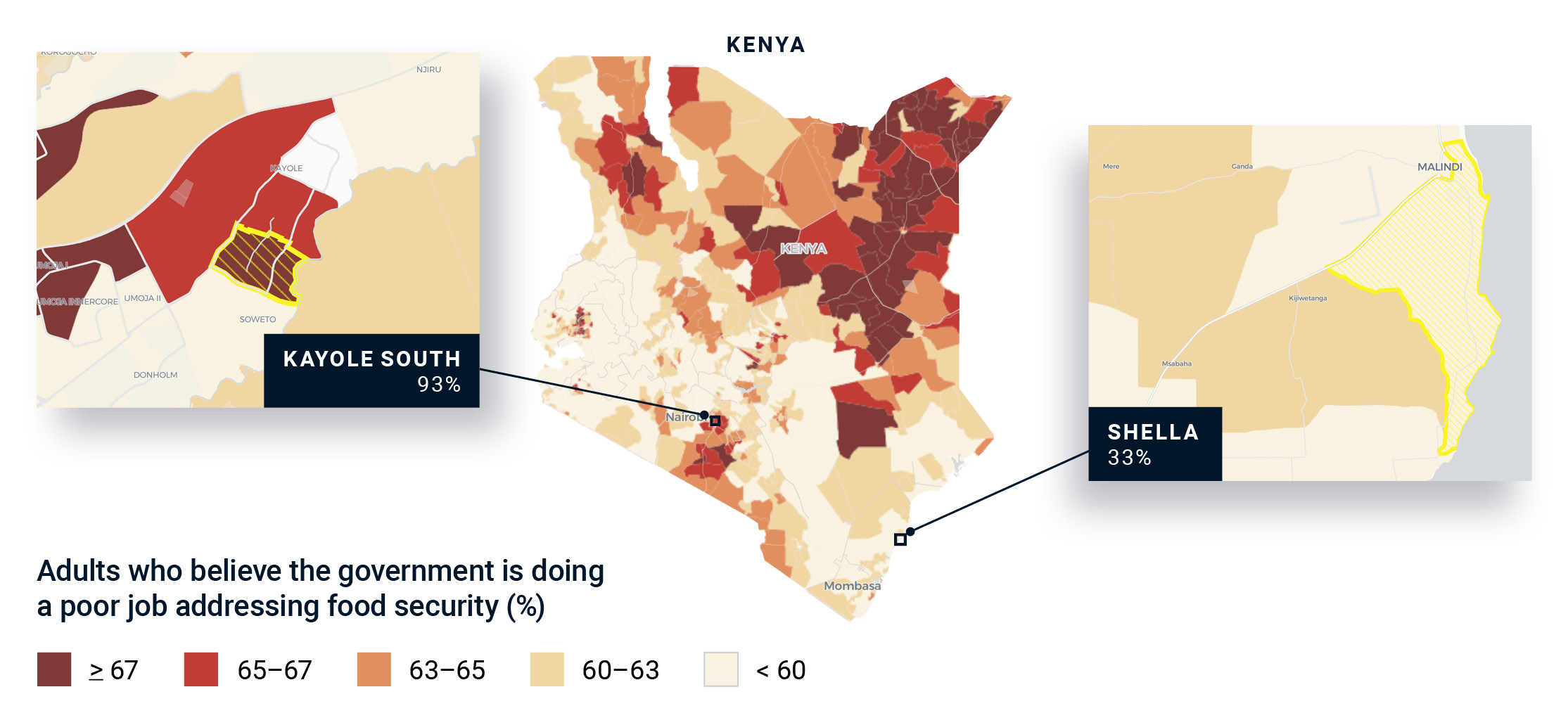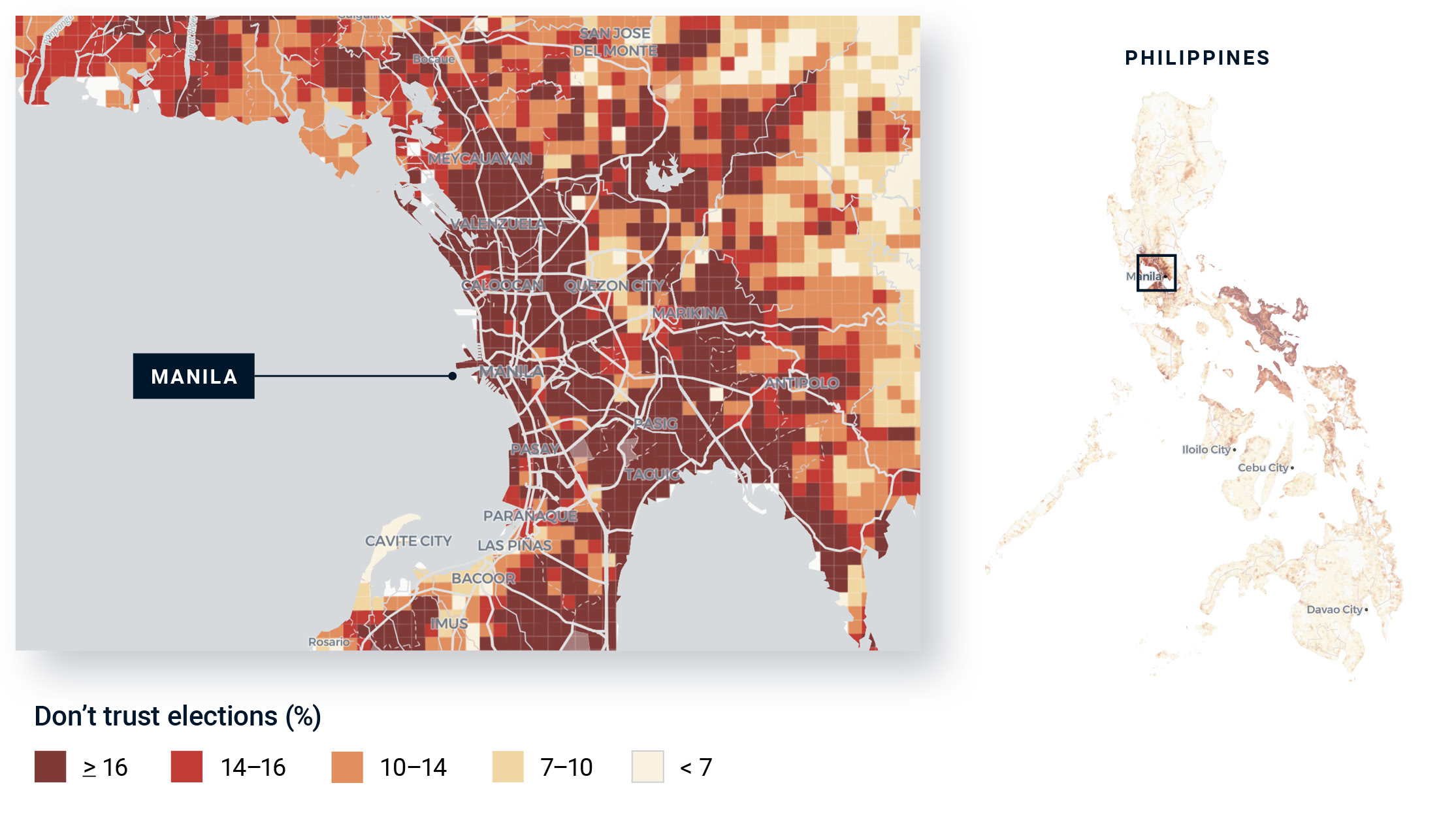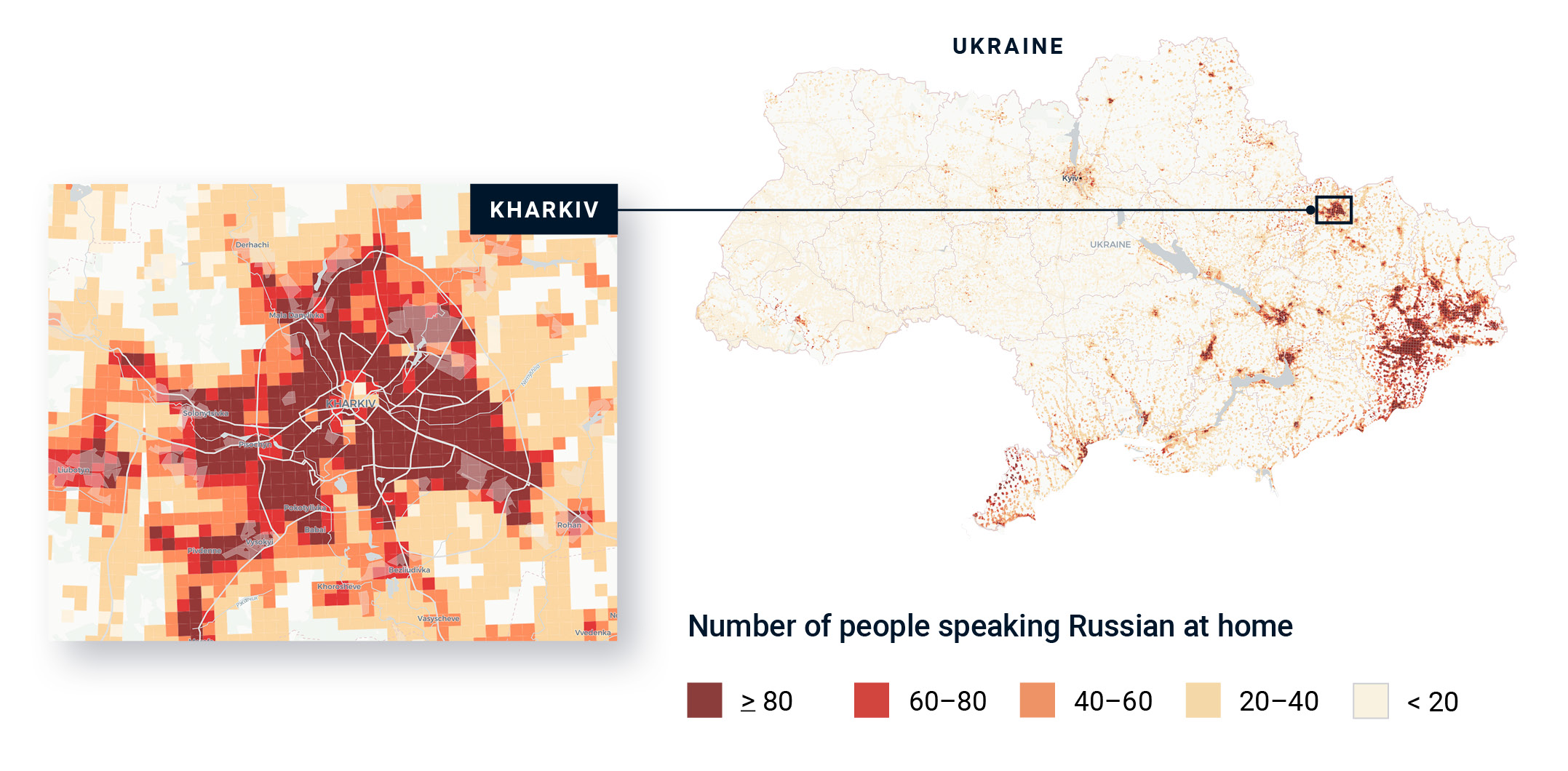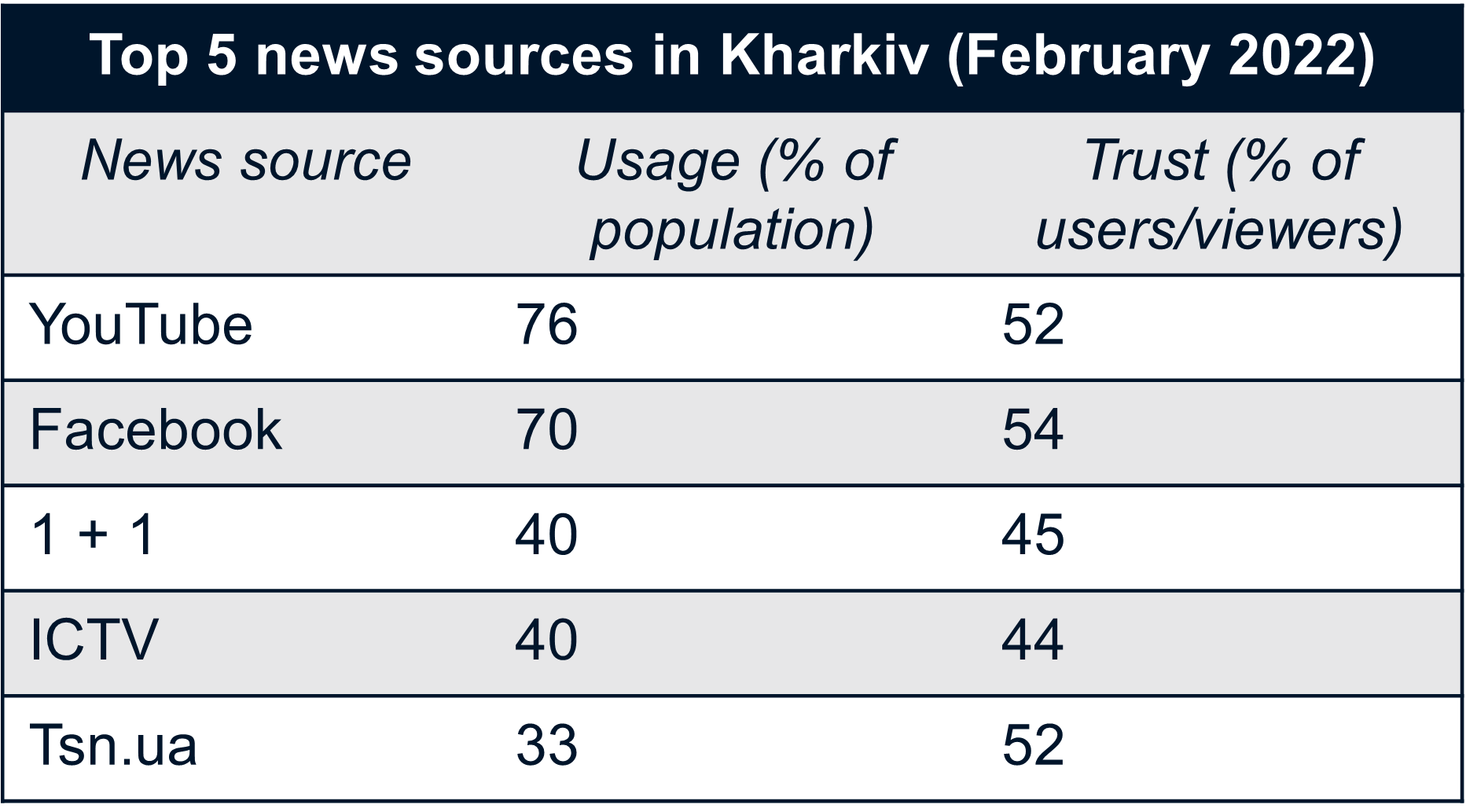Fraym Partners with DT Global to Evaluate Program Impact in Conflict-Prone Areas

Citizen voices are critical to understanding government effectiveness, democratic norms, and vulnerability to disinformation. Without localized data on people’s attitudes and attributes, governance programs are less effective.
Fraym’s localized population data provide foundational understanding that informs programming to strengthen democratic governance, support peaceful societies, and improve overall development and security outcomes.
Access to Fraym data means our partners:
Below we outline some specific examples of how Fraym data accelerates these efforts.
Inform responsive governments to better serve the needs and preferences of the public.
Challenge: Government responsiveness and effectiveness of public services varies spatially across a given country. For example, the proportion of adults who believe the Government of Kenya is doing a poor job addressing food security varies by ward from 33% in Shella to 93% in Kayole South.

Solution:
Unprecedented spatial insight into how trust in institutions and democratic norms, like citizen participation, are shifting around the globe.
Challenge: Norms that reflect trust in institutions, respect for democratic values, and human rights evolve over time and vary at the local level. For example, while mistrust in elections decreased nationally in the Philippines from 14% in Q2 2022 to 11% in Q3 2022, mistrust increased in Manila from 17% to 20% over the same period of time.
Solution:

See how vulnerability to disinformation changes over time and inform efforts to bolster resilience by ensuring resources and messaging are targeted to communities most at risk.
Challenge: Disinformation threatens democracies around the globe by eroding stability and boosting malign influences. For example, Russia’s disinformation campaign in Ukraine aimed at destabilizing society and weakening the population’s trust in democracy laid the groundwork for Russia’s invasion and the ensuing humanitarian crisis. In Kharkiv, the most popular ways of getting news just prior to the invasion were YouTube (76%) and Facebook (70%), both channels through which Kremlin-backed disinformation has been shared. While over half of the population of Kharkiv trusted YouTube and Facebook, only 32% often checked the accuracy of news information on social media at the time.
Solution:


Efforts to strengthen democracy and governance continue to be critical in improving development outcomes worldwide. Understanding local threats to democracy is necessary when designing, implementing, and adapting impactful programming. With community-level data you can more effectively target interventions to communities most in need of enhanced public services or most at risk of the consequences of poor governance and malign influence.